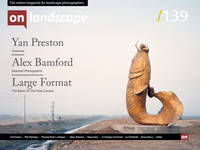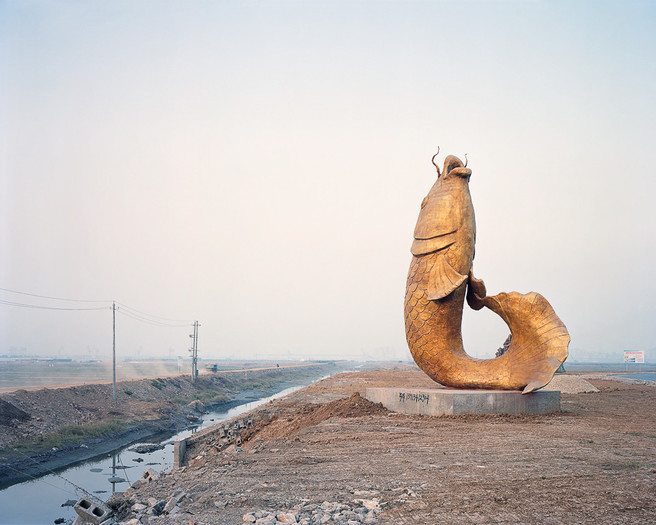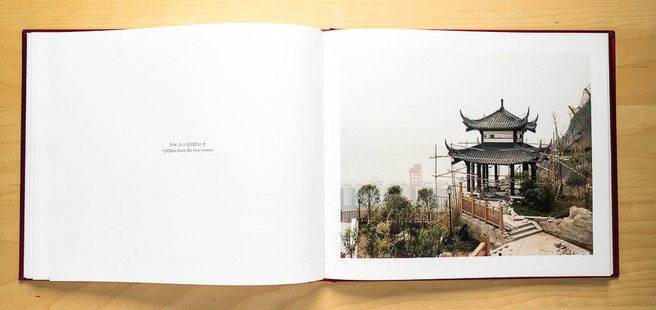Interview about Yangtze River Project

Tim Parkin
Amateur Photographer who plays with big cameras and film when in between digital photographs.
I've known Yan Preston since 2013 when she came to visit to bring some 5x4 colour negatives to scan for an upcoming exhibition. The first work were the pictures taken at the source of the Yangtze river and instantly intriguing as it was a new take on a burgeoning Chinese photographic movement documenting this amazing watercourse. Most of the photographers working the river had no more than an academic interest but Yan's pictures revealed a bit more. A few years later I visited Yan in her hometown of Hebden Bridge and talked to her about where she began in photography and how this epic (and I don't use the word lightly) project came about.
If you haven't already seen the work, here's a brief description from the World Photography Association.
"The concept for Mother River, Yan Preston’s four year photographic study, was put in place once she came to live in Yorkshire, England and was thinking about her motherland, China. Surrounded by other people's images of the Yangtze River, she formulated a way that would be unique to her vision. The plan was to photograph, with a large plate camera, 63 Y points which correlate to precisely 100 kilometre points along the Yangtze River, making up an epic journey of 6.320 km across China. Her vision of China, from the snow plains of Tibet to the distant ocean is presented in a touring photographic exhibition, part-curated by World Photographic Academy member, Zelda Cheatle, along with some film and objects from the expedition."
Earlier this year Yan also won the Syngenta Photography Award and was exhibited at Somerset House.
************
TP: Where and when did you start with your photography?
YP: I started when I was a kid in central China and at the time it was quite third world. My dad moved to Japan in the 1980s and when I was a teenager he bought a Canon automatic camera. I saw a picture of this very badly exposed sunset but I remember that moment. I had seen many sunsets but never really 'seen' one. The context it was shown in made a difference. I made a mental note about photography but nothing beyond that at the time. When I went to University in Shanghai, that was very different for me as it was a city. Some people would go into our university to sell books - there was a book stall. There was a series called Black Lands.
TP: What were you studying at the time?
YP: Medicine. I was a clinical medical student. I was a very romantic person and I was looking at the world and I’d find it all very beautiful. So I thought maybe I should learn photography because I found the world so beautiful I wanted to record it. I was very innocent at the time. I think then I saw some National Geographic Magazines and in those years it was really powerful pictures. That’s what planted the little seed and I bought a camera for £16 it was a Seagull camera with a fixed lens.
I wanted to join the university camera club and for some reason that year so many people wanted to join. So they gave us each a theoretical book, and I can’t remember what it was. We were going to pass a test to answer questions that based on the book and as I didn’t read the book (and still haven’t!) I didn’t pass. So I couldn’t join the club. So I learnt regardless so I made friends with the Vice President of the camera club so we went out a few times and he taught me a few things like the golden third rule. I really enjoyed photography and I went to a few tourist places and I was doing a bit of flowers, landscape. Never did any real photojournalism, very amateur.
I didn’t have any photography friends and I now realised that was because I was a medical student and they were so committed. After the university, my biggest dream was to have a Nikkon FM2 but my first months wage was £72 and FM2 in those days cost £1000. I remember that and cried as I couldn’t work out how I was going to save up!
I was into climbing at the time and that became a bigger thing than photography. I found this book Mountain Light by Galen Rowell and my photography leapt after reading this one book. It was expensive as it was an imported book.



